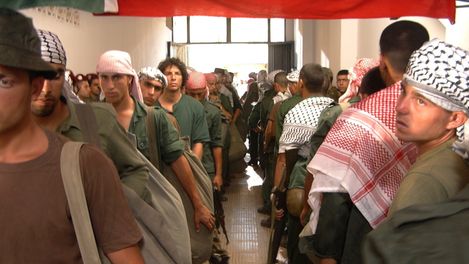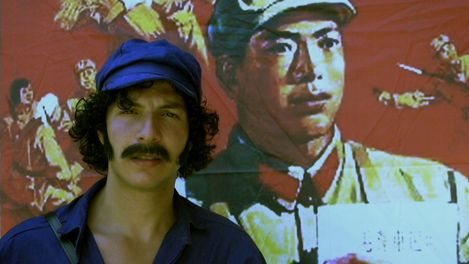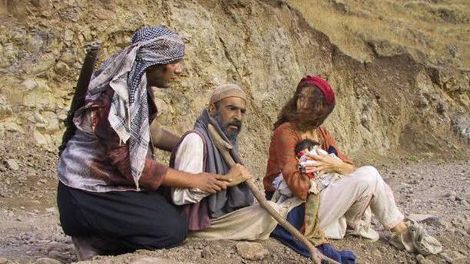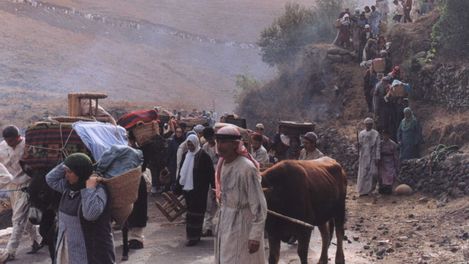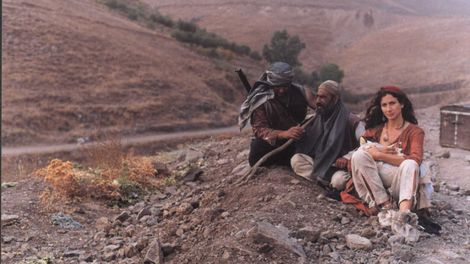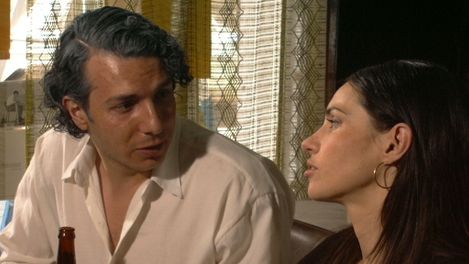So wie Sheherazades Märchen aus Tausendundeiner Nacht ihre Hinrichtung hinauszögerten, so hält auch der palästinensische Fedajin und "Revolutionsarzt" Khalil im Beiruter Lager Schatila den Widerstandshelden Younès durch Gespräche am Leben. Khalils Monolog umspannt 50 Jahre palästinensischer Geschichte: von der Gründung Israels, dem Exodus von 1948 bis zum Oslo-Friedensprozess.
Telle Shéhérazade évitant l’exécution en contant les Mille et une nuits, Khalil, un fedayin palestinien devenu "médecin révolutionnaire", maintient en vie Younès, un héros de la résistance, par un flot de paroles dans le camp beyrouthin de Chatila. Son monologue couvre 50 ans d'histoire palestinienne, de la naissance de l'État d'Israël et l'exode de 1948 aux accords de paix d'Oslo.
Come Sheherazade nelle Mille e una notte rimandava la sua esecuzione raccontando storie, così, nel campo profughi di Shatila a Beirut, i fiumi di parole di Khalil, feddayin diventato "medico rivoluzionario", tengono in vita l'eroe della resistenza Younès. Il suo monologo ripercorre 50 anni di storia palestinese, dalla nascita dello Stato di Israele e l'esodo del 1948 fino agli accordi di Oslo.
Sheherazade's tales of the Arabian Nights were a ploy to stave off her execution. So too, Khalil, a Palestinian feddayin turned 'revolutionary doctor' keeps Younès, a resistance hero, alive by rivers of talk, in the Beiruti camp of Shatila. Khalil's monologue covers 50 years of Palestinian history, from the birth of the State of Israel and the exodus of 1948 down to the Oslo peace agreements.
